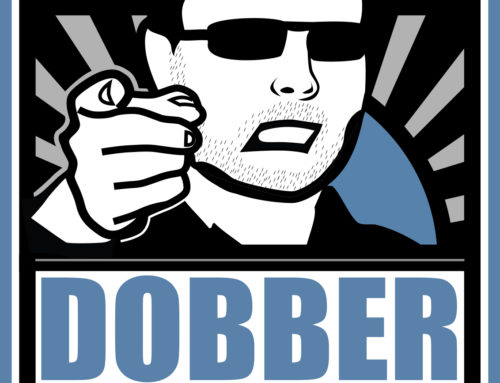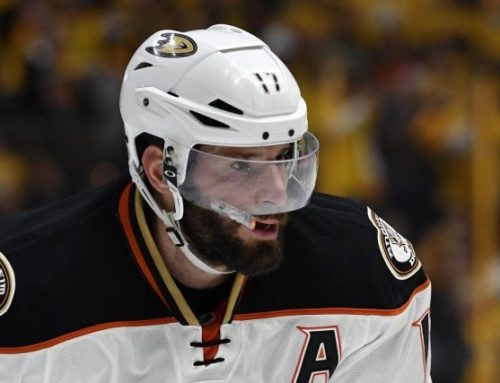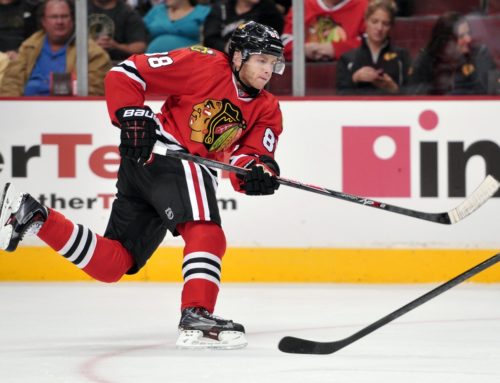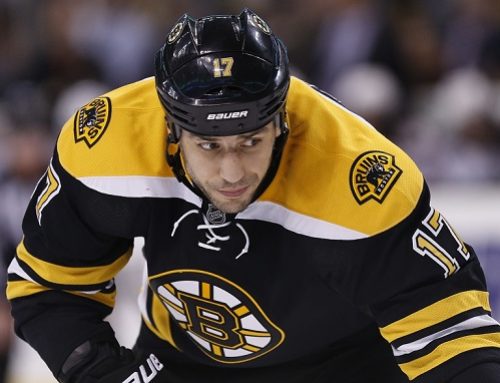
If you've ever felt maybe, just maybe, that when it comes to picking a winner on any given night, hockey represents a tougher challenge than other pro sports, then you're not alone. Whether you're trying to beat the odds on a game, or simply trying to figure out which goalie to start, choosing correctly isn't easy, and it turns out there's evidence suggesting that hockey fans have it harder than most.
Beating the Odds
The famous (and infamous) Bob McCown of The Fan 590 and Roger's Sportsnet teamed up with David Naylor of the Globe and Mail a while back to produce McCown's Law: The 100 Greatest Hockey Arguments. When it comes to predicting the outcome of a hockey match, the long-time radio host, hockey's "odds are by far the worst on any board."
McCown explains that most sports offer a '10-cent line' which means that in order to win $100, a wager of $110 needs to be placed. Thus, "the bookmaker who collects one bet on the Maple Leafs and another on the Canadiens would take in $220 in total. He would then pay out $210 to the winner, leaving himself a profit of $10." And, "when betting with a 10-cent line a gambler must win 52.4 percent of his bets to break even. That doesn't sound like a lot, but it's actually difficult to achieve." Anyone who follows this site likely understands the amount of work that goes into Dobber's seemingly humble and half-serious goal of being right at least 52 percent of the time.
Now here's the kicker. According to McCown, "in hockey…the bookmakers almost always post 20-cent, 30-cent or even 40-cent lines. With a 20-cent line, you've got to bet $120 to make $100…[and] in order to beat a 20-cent line you'd need to win 55 percent of the time. And with a 30-cent line, that rate grows to almost 57 percent. Anything higher than that and you're talking about lottery-type odds of taking home any money."
The reason for the stacked odds? McCown argues that "there's no real market for hockey betting, which is why the casinos aren't interested in doing the work necessary to produce a 10-cent line."
So betting on hockey while taking in the draft in Vegas doesn't sound like a solid retirement plan – it sounds a lot more like playing chicken with a Via train. That said, if you follow folks like DobberHockey's Marty Kwiaton, at least you're not alone. While I haven't met Marty yet, I picture anyone who publically makes these sorts of predictions week after week looking like a character who just walked off the set of Guy Ritchie movie. Fearless and kinda scary. And his results are good, so he obviously does his homework…lock, stock, and all that.
Hockey Isn't Simple
Unfortunately, the difficulty in predicting hockey wins isn't just about a lack-lustre work ethic on the part of the casinos and other observers. According to some awfully smart guys who like math, hockey is inherently less stable than some other North American professional sports.
In order to learn the basics about strategy (and gain some humility), military cadets are often subjected to a game called Colonel Blotto (ridiculous name, I know). Blotto games are deceivingly simple, but teach the important lesson that even simple games can involve agonizing choices. Without getting into tedious details, the game requires participants to distribute troops across a set number of battlefields, while your competitor does the same. Whoever commits more troops to a given battlefield takes the field, and whoever takes more fields wins the match. Games range from simple, with few fields and equal numbers of troops, to more complex games involving asymmetric numbers of troops and numerous battlefields.
What's interesting is that those players with relatively fewer troops tend to win more often as you increase the numbers of battlefields, and that's counterintuitive.
But by increasing the number of elements to consider, the game grows more complicated and predictability decreases.
As discussed by author and behavioral finance expert, Michael Mauboussin, "an analysis of the statistics reveals that sports with a greater degree of interactions have a larger percentage of instances where weaker teams beat stronger teams. Past win-loss records capture asymmetry here, and the number of players approximate interactions. For instance, a study of over 43,000 games revealed that the underdog won approximately 45 percent of the time in the English Football Association—England's premier soccer league—but a lower 37 percent of the time in the U.S.'s National Basketball Association. This empirical observation fits well with the Colonel Blotto game, which demonstrates that more battlefields improve the odds that the underdog will win."
The study referred to by Mauboussin is titled Parity and Predictability of Competitions, and was published in the Journal of Quantitative Analysis in Sports in 2006 by the cosmopolitan sounding group of Eli Ben-Naim, Federico Vasquez, and Sidney Redner. Besides being immeasurably less entertaining and readable than this website, the study investigated a number of major sports and attempted to gauge their competitiveness by measuring how often teams with poorer records upset those with better records.
It turns out that among the four major North American sports, only in Major League Baseball do upsets occur more frequently than in the NHL. Both the National Football League and the National Basketball Association (which, for any number of reasons is often compared to the NHL) are much more predictable according to the study. If fact, the NBA is becoming more predicable, while the NHL has become consistently less predictable since the 1980s (interestingly, there was a massive fall-off in unpredictability in the wake of the first expansion in 1967, which didn't bottom out until the late 1970s).
The difference between the frequency of upsets in basketball and hockey is likely partially explained by the fact that hockey employs a much larger and more active bench, thus increasing the number of active players over the course of a game, never mind the addition of an often dominant sixth player in the form of a goaltender.
And the 2006 survey did not take into account post-lockout data (it included NHL results from 1917 to 2004). With a hard salary cap now in place, very few would be surprised if the NHL had become an even less predictable league since the survey was published.
On the one hand then, we hockey fans can rejoice at the inherent unpredictability and resulting entertainment value of our beloved game, but as wannabe predictors of the sport we must recognize that hockey has a wild nature that requires us to do our homework (and cross then our fingers).





 PHI
PHI TOR
TOR ANA
ANA NYI
NYI BUF
BUF CGY
CGY VAN
VAN CAR
CAR STL
STL MTL
MTL WSH
WSH
